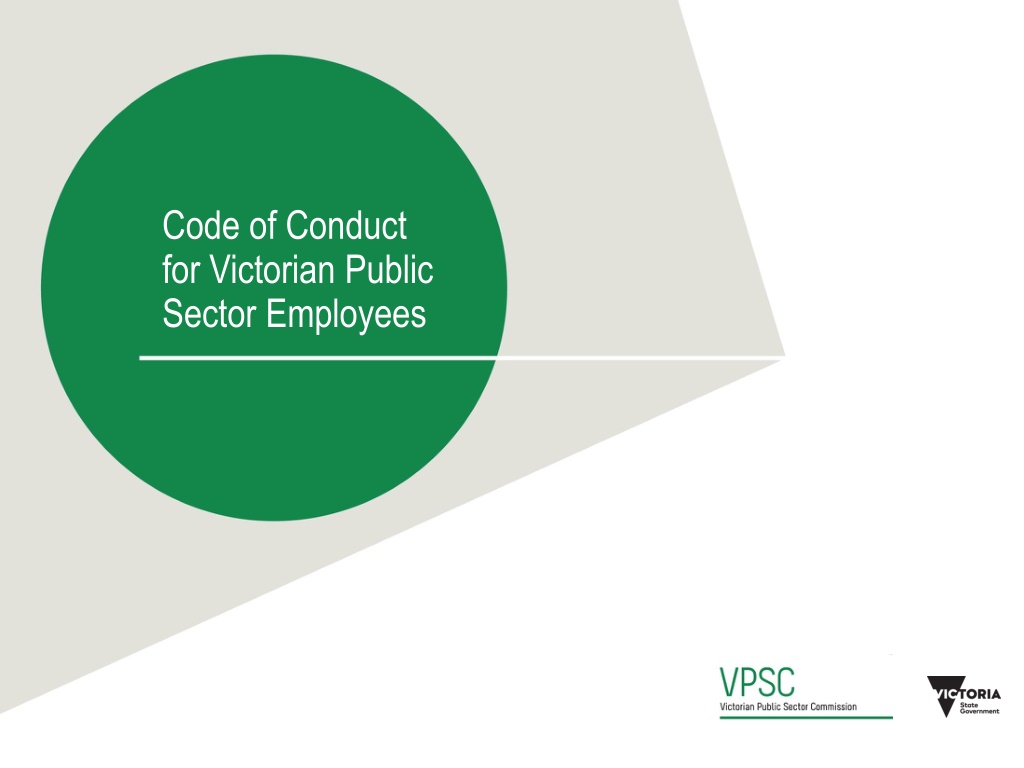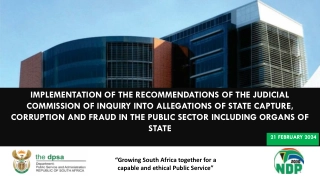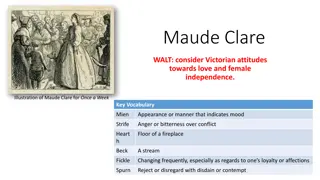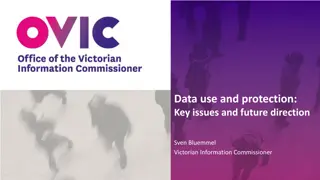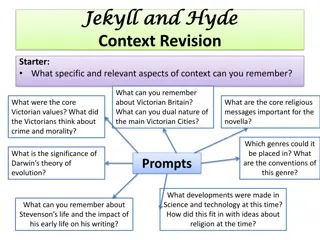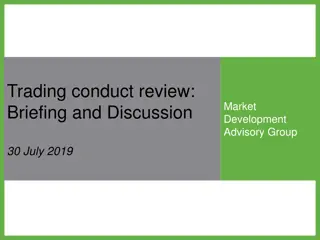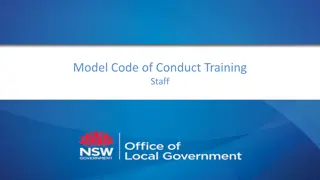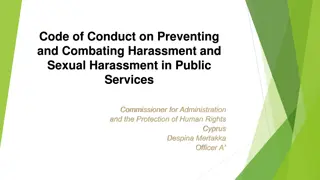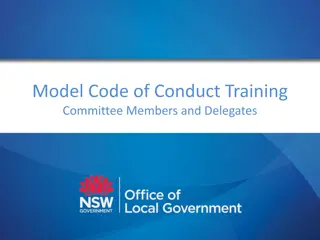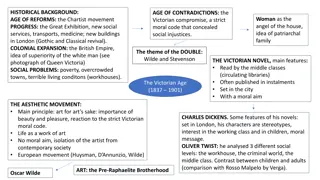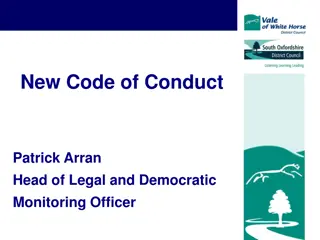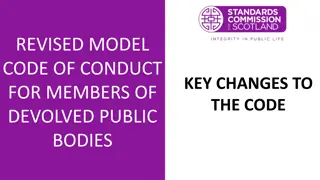Understanding the Victorian Public Sector Code of Conduct
The Code of Conduct for Victorian Public Sector Employees outlines expected behaviors towards the government, community, and colleagues. It emphasizes values such as responsiveness, integrity, impartiality, accountability, respect, leadership, and human rights. A shared understanding of these values is crucial for high performance, competitive advantage, organizational clarity in crisis, increased agility, creativity, and accelerated employee capability. The code also guides on demonstrating responsiveness, integrity, impartiality, accountability, and respect in various work aspects.
Download Presentation

Please find below an Image/Link to download the presentation.
The content on the website is provided AS IS for your information and personal use only. It may not be sold, licensed, or shared on other websites without obtaining consent from the author. Download presentation by click this link. If you encounter any issues during the download, it is possible that the publisher has removed the file from their server.
E N D
Presentation Transcript
Code of Conduct for Victorian Public Sector Employees
What is the code of conduct? Describes how we are expected to behave towards the Victorian Government, community and colleagues May be supplemented by information in: Legislation Industrial agreements Awards Policies Procedures Failing to comply with the code may be misconduct
The code reinforces our values Responsiveness Integrity Impartiality Accountability Respect Leadership Human rights
Why is a shared understanding of the values important? Encourages high performance Gives organisations the competitive edge Provides organisational clarity in moments of crisis Creates an organisation with increased agility and creativity Enables strategic organisational learning and accelerated employee capability and performance Collins, J & Porras, J 1994, Built to last: Successful habits of visionary companies
Demonstrating responsiveness Advising Government Remaining apolitical Services to the community Contributing to improvements
Demonstrating integrity Honesty at work Conflict of interest Using powers at work Other employment Financial probity Public trust Official information Criminal offences Public comment Drugs and alcohol Reporting unethical behaviour
Demonstrating impartiality Decisions and advice Gifts and benefits Acting fairly Implementing government policies and programs
Demonstrating accountability Working to clear objectives Being responsible for decisions and actions Work resources Open to scrutiny Ability to meet essential requirements Compliance with legislation
Demonstrating respect Fair and objective treatment Privacy and confidentiality Maintaining confidentiality Equity and diversity Improving outcomes
Demonstrating leadership Leading by example Managing staff Supporting others
Demonstrating human rights Understanding human rights Making decisions and providing advice consistent with human rights Implementing human rights Protecting human rights
Not just good versus bad Intentional misconduct to benefit the organisation Eg: An employee bypasses quality controls to meet a deadline Intentional misconduct to benefit the individual Eg: An employee embezzles funds from his or her employer Unintentional misconduct to benefit the organisation Eg: An employee uses confidential information improperly and there is no company policy against this Unintentional misconduct to benefit the individual Eg: An employee accepts lavish entertainment from a supplier without knowing company policy
Decision making model Define the problem Identify and consider stakeholders Identify underlying values, principles, laws and policies Specify and evaluate alternatives Get another opinion Make a decision and act
Where to go for further information A trusted colleague Your manager Human resource manager Victorian Ombudsman: www.ombudsman.vic.gov.au Equal Opportunity and Human Rights Commission: www.humanrightscommission.vic.gov.au Victorian Public Sector Commission: www.vpsc.vic.gov.au
What to do next Read the code of conduct Lead your team in discussing a workplace problem in your next team meeting Start a discussion about the values the next time you have to make a major decision Examine your own behaviour and challenge misconduct in the workplace Speak to HR about how you can get involved in developing a values based organisation
Code of Conduct for Victorian Public Sector Employees
